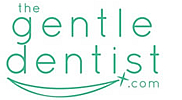Mouth Breathing and its effect on your body

Understanding Mouth Breathing and Its Impact
Why Nose Breathing Is Better
Nose breathing is the optimal way to breathe, as it helps filter and warm the air before it reaches the lungs. This method also supports better tongue posture, which is critical for proper jaw and teeth development, especially in children. Unfortunately, many infants who continue using pacifiers or thumb-sucking past infancy struggle with transitioning from the infantile swallowing pattern—where the tongue pushes forward—to a mature swallow, where the tongue rests against the palate. This improper tongue position can lead to jaw misalignment and dental issues like an open bite, where the upper and lower teeth do not overlap correctly.
As adults, the effects of mouth breathing can be even more severe. Once the jaws have formed improperly, it is almost impossible to change them without surgery. Many adult patients with an open bite experience jaw pain and find the condition cosmetically unappealing. Proper nasal breathing, starting from infancy, is crucial for overall health and oral development.
Reference on tongue posture and swallowing
Effects of thumb sucking and pacifier use on dental health
Long-Term Health Effects of Mouth Breathing
Nose breathing is the optimal way to breathe, as it helps filter and warm the air before it reaches the lungs. This method also supports better tongue posture, which is critical for proper jaw and teeth development, especially in children. Unfortunately, many infants who continue using pacifiers or thumb-sucking past infancy struggle with transitioning from the infantile swallowing pattern—where the tongue pushes forward—to a mature swallow, where the tongue rests against the palate. This improper tongue position can lead to jaw misalignment and dental issues like an open bite, where the upper and lower teeth do not overlap correctly.
As adults, the effects of mouth breathing can be even more severe. Once the jaws have formed improperly, it is almost impossible to change them without surgery. Many adult patients with an open bite experience jaw pain and find the condition cosmetically unappealing. Proper nasal breathing, starting from infancy, is crucial for overall health and oral development.
Reference on tongue posture and swallowing
Effects of thumb sucking and pacifier use on dental health
Treatment and Prevention
Treating mouth breathing often starts with identifying the root cause, such as allergies, nasal congestion, or poor habits developed in childhood. Solutions include using nasal strips, retraining breathing techniques, and managing allergies to encourage nasal breathing. It’s also important to address any structural issues in the nose or mouth that may be preventing proper nasal breathing.
Using humidifiers can help alleviate dry mouth, especially in colder months when the air is drier. Regular dental check-ups can help catch and address oral issues caused by mouth breathing before they become severe.
Faith and Health
At The Gentle Dentists, we believe in caring for your body as a form of stewardship, as Proverbs 4:20-22 reminds us: “My son, pay attention to what I say; turn your ear to my words… for they are life to those who find them and health to one’s whole body.” Proper breathing is essential for overall health, and by addressing mouth breathing early, we help our patients maintain the health of their bodies, which are gifts from God.
Conclusion
If you or a family member are experiencing mouth breathing, schedule a consultation with The Gentle Dentists at (586) 247-3500. Let us help you improve your breathing habits for better oral and overall health.
